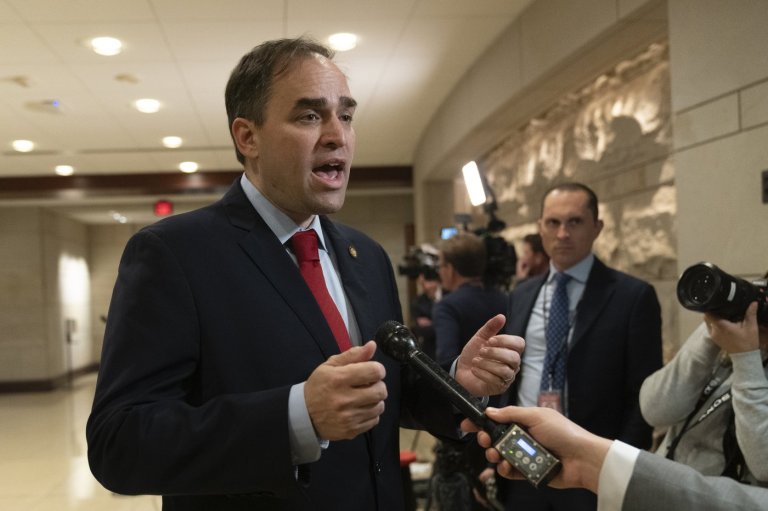Editorial Roundup: New York
Auburn Citizen. June 15, 2023.
Editorial: Secret casino deal a shameful way to govern New York state
Aweek ago, we expressed the following concern: “The end of the legislative session in June carries questionable governing of its own as the Legislature and governor wait until the last minute to hammer out controversial legislation without much public transparency before heading home for the summer.”
Little did we know at the time the extraordinary level of secrecy being employed by some of the state’s most influential decision-makers. As the clock on the legislative calendar ticked down to its final hours, Gov. Kathy Hochul’s administration had struck a revenue-sharing agreement with the Seneca Indian Nation that included the Nation being authorized to build a casino in downtown Rochester.
The bill with the wording on the deal was as much of a surprise to officials in Rochester as it was to the general public and rank-and-file legislators, as well, because the details were wrapped in a non-disclosure agreement between the Senecas and Hochul administration. Nonetheless, the state Senate passed the measure 62-1, with the lone vote against coming from Sen. Jeremy Cooney, of Rochester, who had gotten wind of the casino deal and was concerned, he told the Buffalo News, that lawmakers were “not getting any information from our partners in state government about what the details were.”
Thankfully enough information later leaked out about plans for a Rochester casino that it halted the Assembly from moving the legislation forward, because this deal has the potential to be extremely damaging to gaming operations that already employ hundreds of people in the region — including the del Lago Casino & Resort off the Thruway in Waterloo.
These kinds of monumental agreements and decisions need to be made with utmost transparency, not cloaked in darkness with the governor’s office even entering into a non-disclosure agreement that prevented lawmakers from being informed of specifics before voting on a bill to authorize the finalization.
The people deserve better, and they deserve an apology from the governor and every member of the state Senate, save one.
___
Wall Street Journal. June 20, 2023.
Editorial: New York’s Unconstitutional Mail-Vote Bill
Gov. Hochul should veto this out of respect for the electorate.
Albany is again thumbing its nose at New Yorkers and the state constitution, this time on mail voting. The supreme law of the Empire State reserves absentee ballots for residents who are out of their county or New York City on Election Day, as well as those who can’t “appear personally” at the polls “because of illness or physical disability.”
Two years ago, in a shock to Democrats, the electorate rejected a proposed constitutional amendment that would have loosened the rules and permitted no-excuses absentee voting. The ballot measure failed 45% to 55%. Yet the solons in Albany must think the dummies who vote don’t know what’s good for them. This month the Legislature passed a bill to let anyone vote by mail.
Isn’t this what the citizenry rejected in 2021? “No, you are mistaken,” argued Democratic Sen. Michael Gianaris, during the brief floor debate. “The referendum was relevant to the absentee ballot process. This bill relates to a form of early voting.” What a hilarious semantic con. You see, the state constitution prohibits potaytos. This new legislation contemplates potahtos. Completely different.
To finish the old Gershwin song, let’s call the whole thing off. “The voters of New York said no, we’re going to stick to the constitution, and we’re going to say that only certain circumstances should allow someone to vote by mail, vote by absentee, or whatever it might be,” said Republican Sen. George Borrello. “This bill essentially ignores the will of the people of New York State.” He’s right.
Even if Democratic Gov. Kathy Hochul agrees with the idea on the merits, she should veto it out of respect for the electorate. Otherwise, the courts might have to kill this legal runaround. The simple fact is that New York’s constitution sets out a provision for “absent” voters. The Legislature can’t get around that provision by renaming it.
___
Albany Times Union. June 21, 2023.
Editorial: Watching out for kids
Too many schools aren’t reporting incidents of bullying, as required by law. The state must make them understand how serious this is.
“Kids will be kids.” “Just ignore them.” “It happens to everyone.” A few generations ago, that was the typical American response to schoolyard bullying.
We know better now. Right?
Whether physical or verbal, bullying can fracture a child’s self-esteem, their trust in others, their ability to form relationships. It can make them dread going to school and disrupt their ability to learn. Its effects can last for the rest of a child’s life.
Make no mistake: Schools have come a long way on bullying. Educators are trained to recognize it; children are taught about healthy conflict resolution. That is important. But what’s not being done is what should be the most straightforward part of all: reporting incidents of bullying to the state.
The Dignity for All Students Act mandates that schools are “responsible for collecting and reporting data regarding material incidents of discrimination, harassment, and bullying.”
But as the Times Union’s Wendy Liberatore reports, the number of school bullying incidents reported statewide has dropped 85 percent over the past decade – even as national statistics indicate bullying is on the rise.
In recent years, plenty of schools here in the Capital Region and across the state have reported just a few incidents, or none at all. For example, Saratoga Springs City School District, where parents have said their Black and biracial children are routinely taunted with racial slurs, had no reported incidents of bullying in 2020-2021. And the superintendent in Corinth, Saratoga County, told the Times Union that the acts of bullying he’s aware of need not be reported to the state because the school “handled” them.
That falls short of what the law requires. The state is collecting data so it can see patterns emerge, see what’s working, and hold districts accountable.
This lapse in responsibility is not unique to Corinth or Saratoga Springs. And it’s not new, either.
In 2013, the Times Union reported on schools’ spotty compliance with state law requiring them to report incidents of bullying, intimidation or harassment to the state. Some schools reported dozens, even hundreds, of occurrences. Others, not a single one. State officials said some administrators underreported so as not to have their school labeled “dangerous.” School officials countered that the reporting categories were confusing – too technical or overly broad.
And in 2017, an audit by the office of state Comptroller Tom DiNapoli found “serious errors” in bullying reports, with a significant number of schools failing to report incidents. The audit also noted a lack of training for noninstructional staff such as lunch monitors, who frequently didn’t know what behavior was worth reporting or how to report it.
For our most recent look at bullying reports, neither the New York State Council of School Superintendents nor the School Administrators Association of New York State responded to Times Union interview requests. The state Education Department only mumbled some platitudes about “fostering an educational environment that is safe and free from discrimination.”
That’s what we all want. And one key to getting there is to make all schools follow the law.
It’s clear that the self-reporting system isn’t working, and hasn’t for a long time. The state must assess whether educators and support staff need more training to know when to report bullying. They must better train administrators on complying with the law. And it’s important for the state to conduct regular audits and impose penalties on districts that consistently underreport.
Every school must be accountable to parents and communities. And most importantly: Every child deserves to feel safe at school.
___
New York Post. June 21, 2023.
Editorial: Pot revenues up in smoke: another Albany weed fiasco
New York’s billion-dollar promise on legal weed has gone up in smoke.
The Empire State is set to make as much money from its first year of legal weed as did Montana — a state with one-twentieth the population.
That is: New York’s losing millions in taxes thanks to the painfully slow rollout of legal-sale licenses, while also fueling the plague of illegal shops.
And while the take is likely to grow as Albany belatedly gets it less-wrong, the estimated tax take has dropped from then-Gov. Andrew Cuomo’s late-2018 guess of $1.3 billion a year to now-Gov. Kathy Hochul’s projection of just $1.25 billion over the next six years.
The Legislature wrote insanely complex rules for who should be first in line for a legal-sale license, while also insisting on a Rube Goldberg scheme for helping the underprivileged qualify.
And Hochul’s Office of Cannabis Management has been accused of snubbing disabled military vets as well as women and minority-owned businesses and distressed farmers by prioritizing convicted drug felons for licenses.
Meanwhile, New York cannabis farmers are sitting on 300,000 lbs. of weed; many fear bankruptcy.
Albany pols couldn’t make money selling umbrellas in a downpour.
Of course, New York politicians aren’t known for their understanding of how the private sector works, or even of how government can operate efficiently: If the subject’s not pay-to-play bribery, most are clueless.
Apparently, they still figured they understood the pot business. (Hmm . . . )
Yet, even by Albany standards, they produced bad policy, executed terribly.
And who knows what damage they’ve wrought on the mental health of the population by legalizing ever-stronger mind-bending drugs.
We’re not so naive as to look for any apologies for this mess. Sadly, it’s too much to even expect them to learn a single lesson from a disaster of their own making.
___
Jamestown Post-Journal. June 21, 2023.
Editorial: If State Wants AEDs At Camps, Youth Sports Games Then The State Should Provide Money
No one can argue the wisdom of having an automated external defibrillator at the site of youth camps and youth sports league practices and games.
A recent American Heart Association study reports cardiac arrest victims who received a shock from a publicly-available AED had far greater chances of survival and being discharged from the hospital than those who did not; 66.5% versus 43%.
At the same time, no one can argue that youth sports leagues often operating on a shoestring — just ask parents paying joining fees and fundraising during the season — that purchasing the equipment is going to be difficult. AEDs can cost up to $1,500 each, and legislation soon to be on its way to Gov. Kathy Hochul for approval doesn’t provide any state funding to purchase the AEDs.
A.366/S.7424 don’t require the purchases right away. Leagues have to submit a plan showing how they will eventually buy AEDs — but when that time comes there is no state funding available to help with the purchase. That’s going to be a heavy lift for leagues with several practice sites in use at the same time.
That’s why we can’t disagree with Assemblyman Andrew Goodell, R-Jamestown, when he said on the Assembly floor that the legislation should have come with at least some state funding attached. Parents are already paying more to enroll their children in sports leagues or camps, with some leagues offering scholarships for children who want to play but otherwise couldn’t afford to play. By not attaching state funding to the AED legislation, sports leagues are left with a few options. One is to apply for grants that can sometimes provide an AED, as has happened in the past with police agencies. Another option is to ask parents to do additional fundraisers to help pay the eventual cost of an AED purchase. A third option is to simply increase registration fees for leagues, though that option may mean leagues make themselves too expensive for some children to participate.
Assemblywoman Crystal Peoples-Stokes, D-Buffalo and Assembly majority leader, said on the Assembly floor that unaffordability is not a valid argument against the AED legislation because “we figure out ways to buy everything else we want” before adding “I think there is no cost that’s too much to protect the life of a child.” We agree on both counts. It’s inarguable the state always figures out a way to buy everything else it wants — so make state funding available for sports leagues to meet the state’s AED mandate when the time comes.
END
Join the Conversation!
Want to share your thoughts, add context, or connect with others in your community? Create a free account to comment on stories, ask questions, and join meaningful discussions on our new site.


















Leave a Reply
You must be logged in to post a comment.